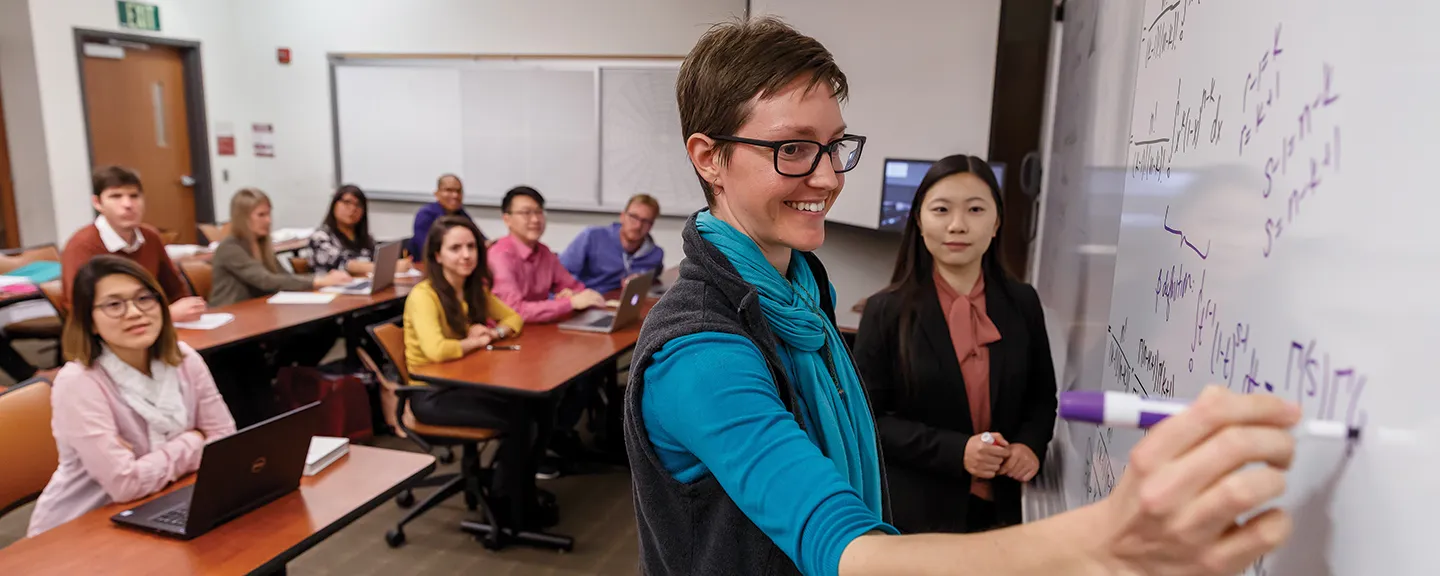- Home
- >
- APU Articles
- >
- News Article
Becoming a Recognized Leader in Technology and Data Management
March 11, 2021 | Written By Loren Martin, PhD, and Don Davis, EdD

Certainly, the university provides a unique environment for the collection and distribution of knowledge, the acquisition and application of wisdom, and ultimately, understanding. The Christian university provides an opportunity to ground this process in reverence to the Lord and to enlighten our understanding with the knowledge of the Holy One. While institutions of higher learning often succeed in this process with their students, they typically fail to apply this to their own operations, according to John Aubrey Douglass in The New Flagship University. As part of our Renewal strategic planning process by which we engage in “strengthening our capacity for cultivating Christ-centered scholars and leaders,” APU’s Grand Initiative 4 is to become “a recognized leader in technology and data management.” This important objective requires the deployment of innovative technology to harness the information before us in order to gain wisdom and build understanding. This understanding improves learning environments that support transformational experiences for current and future students. Ultimately, understanding informs how we can better cultivate Christ-centered scholars and leaders.
Meeting the objective of this Grand Initiative 4 requires a substantial and necessary financial investment in emerging technologies and a reorganization of institutional information management structures. Such investment and reorganization will equip APU to be more agile, adaptable, and efficient, thereby carving out more time and resources for further innovation. This investment and reorganization has further reciprocal effects as it will better equip APU to collect, manage, and analyze data, which will then lead to better-informed decision-making. Leveraging data to improve internal processes provides a path toward a more efficient and sustainable future for the university and a model to be emulated.
To become a model Christian university means that APU must learn from the best universities while maintaining a clear Christian purpose and distinction. According to Aubrey Douglass and Igor Chirikov (2020), the best universities collect, organize, and analyze data for institutional self-improvement in order to successfully carry out their teaching, research, and public service missions. In fact, all universities collect and analyze data for purposes of required external reporting to the U.S. Department of Education and outside accrediting bodies. Unfortunately, most of this data is underutilized as a tool for self-improvement. And yet, the treasure trove of data before us continues to expand.
For universities, this includes information about admissions, enrollment, student learning and success, faculty performance, academic program evaluation, operations, and finance. It also includes data that can be acquired from website navigation, mobile platform usage, and learning management systems. Indeed, many decisions that we make today carry with them logs or event records that can be harvested and analyzed to determine what factors led to a desired outcome. To be “a recognized leader in technology and data management,” APU must become an exemplar for others to follow by maximizing the value of the data we acquire through innovative techniques and technologies, and with the utmost security and integrity.
Applying wisdom to the information that we acquire to make accurate predictions is how we gain understanding and best serve the mission of the university. Specifically, for students, this translates into understanding how to improve recruitment, engagement, learning, academic success, institutional satisfaction, and spiritual formation; for faculty, how to improve pedagogy, faith integration, research output, service to the university and community, and job satisfaction; for staff, how to improve productivity, performance, and job satisfaction; and for the organization, how to improve communication, collaboration, accountability, efficiency, financial stewardship, and institutional effectiveness. Broadly, this translates into how to better cultivate Christ-centered scholars and leaders, culminating in a Model Christian University.